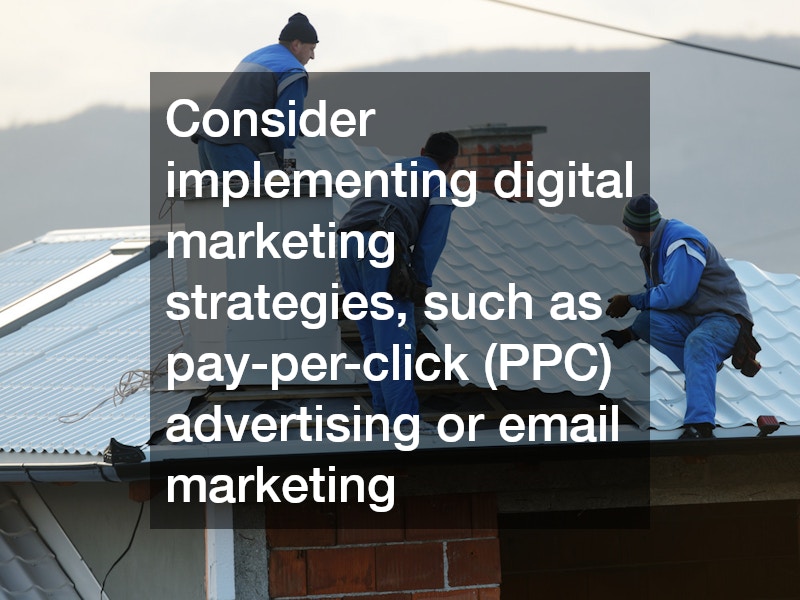1. Conduct Thorough Market Research
Before launching your roofing company, it’s imperative to conduct thorough market research. Understanding the local demand and identifying potential competitors will give you a crucial advantage.
Consider factors such as dominant roofing styles, pricing trends, and customer preferences within your target area. This research will not only inform your business strategy but can also highlight potential niches you could exploit. Armed with this knowledge, your business plan will be far more precise and actionable.
As part of your market research, assess potential partnerships with suppliers and subcontractors. Establishing relationships with reputable suppliers can secure better rates for materials, boosting your profit margins. Subcontractors can offer specialized skills without requiring you to hire a large full-time staff. This flexibility is beneficial, particularly in the early stages of your business. Reliable partnerships can also improve service quality, leading to positive word-of-mouth referrals.
2. Develop a Comprehensive Business Plan
A well-crafted business plan is essential for guiding your roofing company toward success. This document should outline your business goals, strategies for achieving them, and the resources required. Pay special attention to your financial projections to ensure that your business is viable. A comprehensive business plan can also attract investors and secure financing from lenders. Remember, a strong business plan sets the foundation for your ongoing operations.
Include a detailed marketing strategy in your business plan. This should specify how you intend to attract and retain clients. Will you be using digital marketing, print advertising, or a combination of both? It’s vital to measure and analyze the results of your marketing activities for effective adjustments. Moreover, marketing efforts should align with your overall business goals to ensure consistent growth and sustainability.
3. Secure Necessary Licensing and Insurance
Before starting any roofing projects, ensure that you have all necessary licenses and certifications. Licensing requirements vary by region, so research what is required for your location. These credentials not only legitimize your business but also instill confidence in potential clients. Without proper licensing, your company could face fines, legal actions, or even closure. It’s better to enter the market as a fully compliant and credible business.
Contact an insurance broker or agent to evaluate which policies suit your specific business model. Different types of roofing work may require distinct insurance needs. An expert can provide guidance tailored to your company’s activities and risks. Additionally, maintaining up-to-date insurance and licensing showcases your commitment to high standards and industry best practices. Constantly monitor any regulatory changes to stay compliant and informed.
4. Invest in Quality Equipment and Training
Investing in quality equipment is pivotal for the efficiency and safety of your roofing operations. Superior tools not only improve the speed and quality of work but also enhance safety for your team. Inferior tools can lead to mistakes and accidents, costing both time and money. Set aside a budget for purchasing and maintaining equipment. Well-maintained tools will enhance your company’s reliability and reputation.
Partner with reputable suppliers to ensure that you’re using high-quality materials in your roofing projects. The longevity and durability of the materials you choose will be a reflection of your company’s standards. Incorporate this into your marketing strategies to showcase your dedication to quality. Consistently delivering on this promise will create a valuable customer base. In turn, satisfied customers will most likely refer your services to others.
5. Build a Strong Online Presence
In today’s digital age, having a robust online presence is non-negotiable for any business, including roofing companies. Start by creating a professional website that highlights your services, expertise, and client testimonials. A website serves as your digital storefront open 24/7, providing potential clients with valuable information. Utilize search engine optimization (SEO) to enhance your visibility and ranking in search results. An optimized website can significantly increase your client inquiries and revenue.
Social media platforms are invaluable for connecting with your customer base and promoting your services. Regularly post engaging content, such as project updates, tips on roofing maintenance, and before-and-after photos of completed work. Social media also provides an avenue for direct communication with clients, addressing questions or concerns promptly. Encourage satisfied customers to leave reviews and ratings. Positive online reviews can enhance your credibility and attract more clients.
Consider implementing digital marketing strategies, such as pay-per-click (PPC) advertising or email marketing. PPC can target specific demographics, ensuring that your ads reach the right audience. Email marketing helps maintain relationships with past clients while nurturing potential leads. These strategies, combined with your online presence, create a comprehensive approach to market your roofing company effectively. Keeping up with digital marketing trends can help your company stay competitive and relevant.
.


